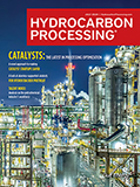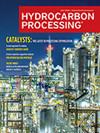EXCLUSIVE: How Saudi Aramco’s chemical business is helping combat the COVID-19 pandemic
As the world continues to struggle with the Covid-19 pandemic, we are ever mindful of the bravery and sacrifice demonstrated by the extraordinary medical professionals of every nation, and rightfully so. Where humanity would be without them and their selfless efforts for the good of all is almost unthinkable.
Also worthy of note, albeit to a much lesser extent, is the importance of the protective equipment being utilized by both healthcare professionals and citizens alike. A range of products including respirators, surgical & respiratory masks, gloves, protective gowns, face shields, syringes, shoes, and many others has been vital to the fight against a hyperactive contagion.
Saudi Aramco has joined an array of industry players in supporting the effort to combat the Covid virus. In regions around the world, Aramco has donated medical supplies, protective masks, gloves, PPE suits, and sanitizers, and has provided both remote and in-person medical services.
In addition to providing material support, our downstream chemicals business continues to manufacture and supply the products that constitute the plastics used to produce the protective equipment being used by so many.
Our production of ethylene, polypropylene, and polymethyl methacrylate (PMMA) in locations ranging from North America to the GCC to East Asia, and marketed around the world through the Aramco Chemicals Company, is an important part of the end-products used in the struggle with the virus.
Unfortunately, the role being played by Aramco – along with many others – is simply not enough. Based on World Health Organization (WHO) modelling, Covid-19 responders require an estimated 89 million masks, 76 million examination gloves, and 1.6 million goggles each month. And at what is arguably the most critical time in recent memory for ample supplies of such materials to be readily available, PPE is vastly undersupplied all over the world.
In response to the rapid rise in the number of cases, hospitals, caregivers, and the medical supply chain have been completely overwhelmed. The WHO has cautioned that the shortage of PPE is endangering the health of workers worldwide and has called on industry and governments to increase manufacturing by 40% to meet rising global demand.
The surge in demand for PPE across the globe translates into higher demand for the plastic used to manufacture it. This will not change any time soon; therefore, how humanity goes about handling and properly disposing of it, must.
Covid-19 will change the way the world views and deals with public health and hygiene. The public will be more cautious, government health policies will be more stringent, and the preparedness of the medical industry will continue to be a priority. As a result, a significant increase in demand for PPE is likely to remain.
The benefits of plastic are as undeniable as the challenges related to its proper use and treatment. Better waste management practices, including the recycling of plastics into energy and fuels; mechanical and chemical recycling; and converting recycled plastic into material used in paving roads and producing concrete are but a few examples of steps that must be permanently incorporated into the downstream value chain.
The current battle against Covid-19 is highlighting many of the vital uses of plastic. While its versatility, physical flexibility, and cost-effectiveness are unparalleled, we must continue to be responsible stewards of this essential material by disposing of it in an environmentally responsible manner. This will ensure society can continue to enjoy the benefits of plastic and be confident that it will be sufficiently available when needed to protect us.






Comments